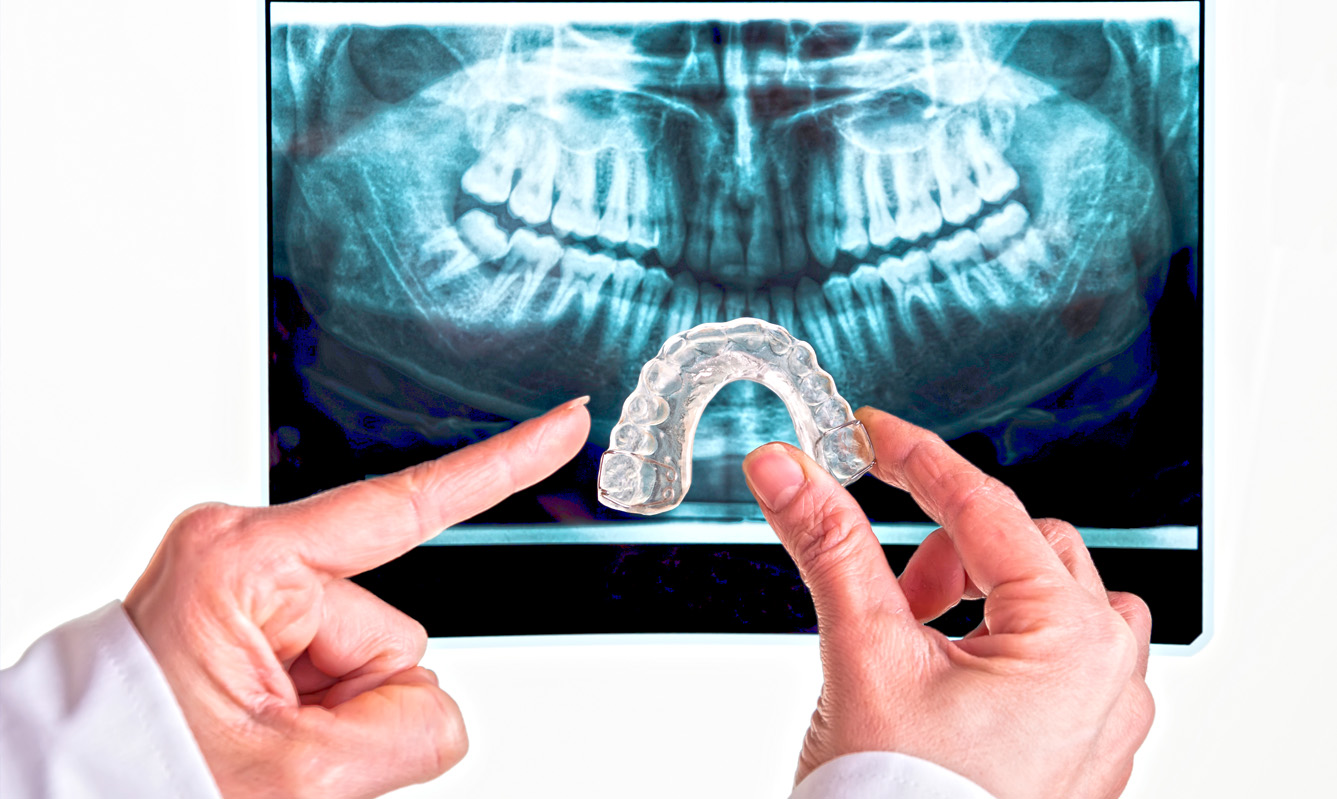You may be aware that all doctors advise against grinding or clenching teeth, but did you know that doing so is a condition called bruxism? Most people experience some level of bruxism, whether it’s occasional clenching over a stressful moment during the day or consistent grinding while sleeping at night. Infrequent bruxism doesn’t require treatment, but in severe cases tooth grinding can pose real risks to your dental health. Continued tooth grinding and clenching can lead to tooth and jaw pain, wear down your enamel and even shift the alignment of your teeth.
How to know if you have bruxism
If you start your day with sore teeth or feel your jaw muscles are tight, you may find yourself wondering: “Do I grind my teeth at night”? Of course, you may not be aware of what you do while you’re asleep. Not sure how to tell if you grind your teeth? If you’re concerned that you may be grinding your teeth unconsciously, an orthodontist can check for signs of bruxism and determine what treatments are available and explain what options you have.
Are braces the solution?
Visiting your orthodontist is a step in the right direction. For some people, tooth grinding can be caused by improper bite alignment. If that’s the case, your orthodontist will recommend the best type of braces for bruxism. And if you are worried about what happens if you have braces, you don’t need to. When your teeth are corrected the orthodontist can create a new night guard to fit your improved smile.
Wearing a night guard can help prevent damaging your teeth while you sleep. However, if your bruxism is because of other jaw issues that cannot be targeted with braces, other treatments may be a better option. Your orthodontist may suggest that you meet with a medical doctor to try to treat the underlying stress or anxiety that is causing the condition.
If you grind your teeth, clench or just have jaw or mouth pain in general and are not sure what to do, contact Dr. Mario Paz and his friendly, skilled staff today. As experts in orthodontia, they can help you navigate your symptoms and progress toward alleviating them.
